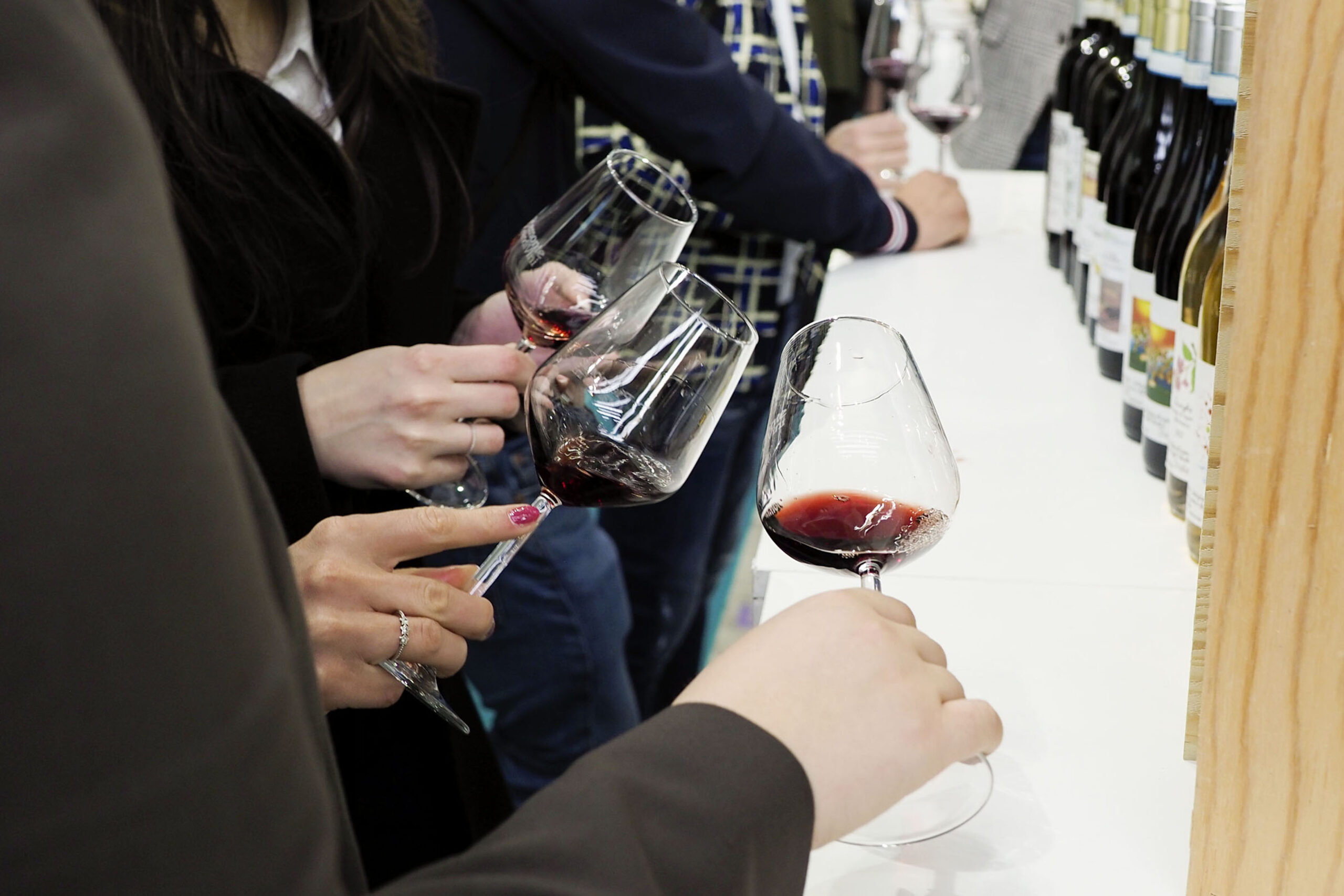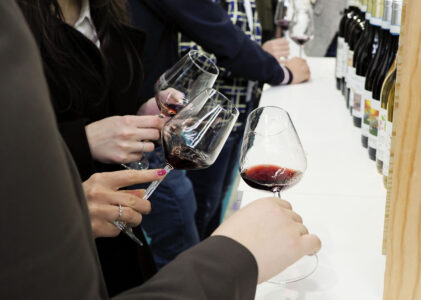Welcome to the Piwi era. In the age of climate change and extreme weather events, new varieties of “resistant” vines, also called “hybrids,” or Piwi (from the German pilzwiderstandfähig meaning “varieties resistant to fungal diseases”) are gaining more and more relevance, especially in Veneto, the Italian region with the largest area planted with resistant vines. The new, cultivated wine varieties are not created by genetic engineering in the laboratory, but grow naturally in the vineyard by crossing American or Asian grapevines with Vitis Vinifera, the “noble” variety that is at the basis of the all wines we know and taste.
Noticeable is the attention given to these new vines for a more sustainable wine growing at the 55th Vinitaly, which from April 2-5 brought the largest wine “embassy” to Verona, with more than 4,000 companies from all over Italy and more than 30 nations, and a record contingent that exceeded 1,000 top buyers (+43% over 2022). The wine business trade-show closed on Wednesday with 93,000 total attendees, including 29,600 foreigners.
The new wine frontiers at Vinitaly
The new wine frontiers came prominently onto the scene at Vinitaly starting with the effects of climate change and its repercussions from the vineyard to the bottle. These aspects were investigated in four different masterclasses featuring wines from grape varieties resistant to the main fungal diseases of the vine (powdery mildew and downy mildew, but not only), and the first two events took place on Sunday, April 2, at the opening of the tradeshow.
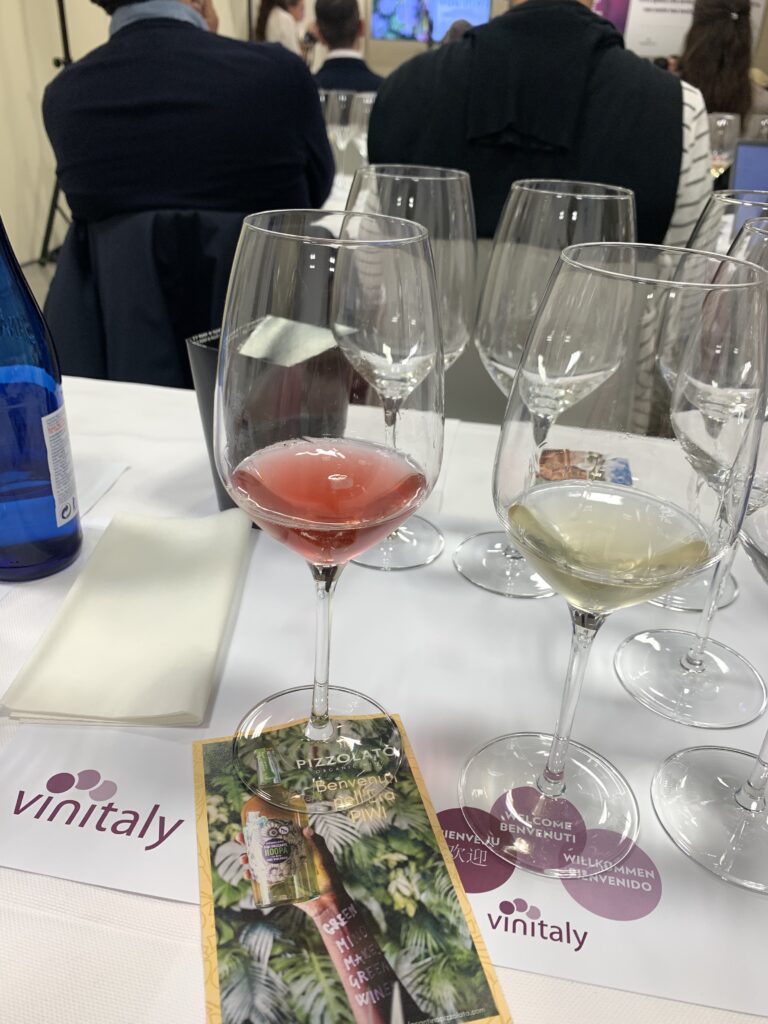
We’re talking about “Discover Piwi: Everything you ever wanted to know about Piwi and never had the courage to ask” Masterclass organised by Cantina Pizzolato di Villorba di Treviso, moderated by wine consultant Filippo Bartolotta, and the tasting of seven glasses from different countries from the old and new world in “New trends – Wine to the moon and back” Masterclass organised by the Donne del Vino and conducted by Cristina Mercuri DipWset, to explore how the wine industry is adapting to climate change.
On Monday, April 3, Piwi varieties were the focus of two other workshops: the seminar “Future Viticulture: vines that resist” held by Attilio Scienza, scientific director of the Vinitaly International Academy, and the seminar of the business network “Resistant Nicola Biasi,” a project that currently groups eight different wineries between Veneto and Trentino at Vinitaly tasting-The DoctorWine selection. This event included the tasting of ten wines from resistant grape varieties, two of which were proposed by the Ca’ da Roman Winery in Romano D’Ezzelino (Vicenza), currently the largest winery in Europe to only produce wines from Piwi grapes.
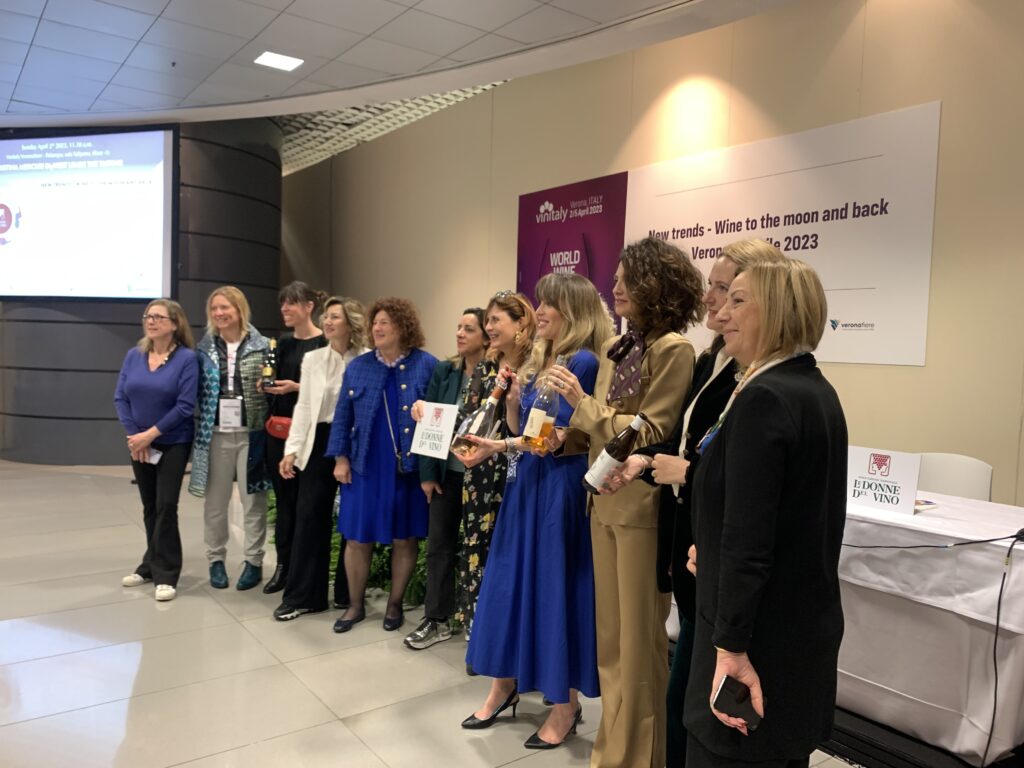
But that’s not all. During Vinitaly 2023, Italy’s regional Piwi associations set up Piwi Italia, the newly formed Italian section of the Piwi International association, which already has 16 sections and 26 member countries worldwide for the promotion of wines made from “hybrid” grape varieties, created to be more tolerant to the main vine diseases and to the extreme effects of climate change.
Why do vines have to be resistant?
Significant amounts of plant protection products (fungicides) are applied in viticulture to prevent possible fungal infestation and to secure the harvest. According to analyzes by the statistical office of the EU (EuroStat), the use of pesticides per hectare and year in viticulture is by far the highest compared to all other agricultural products produced in the EU.
However, PIWI vines have a high resistance to fungal diseases and allow a significant reduction in the use of pesticides, thus protecting the environment. So is it really possible to produce wines of excellence by practicing true and real sustainability in the vineyard and in the winery, while concretely safeguarding the environment?
A detailed discussion on the impact these vines have on agriculture today was the focus of the in-depth masterclass by the Pizzolato winery, which brought its experience on resistant vines that began 6 years ago. A discussion that also featured Alexander Morandell, president of Piwi International, and Nicola Biasi, winemaker of wines from resistant vines.
“Cantina Pizzolato’s project approached the world of Piwi in 2017 with two different approaches: on one hand through the creation of a vineyard with many varieties allowed by the Veneto disciplinary, and on the other hand through the identification, through the mono varietal planting of carefully selected Piwi vines, of the variety suitable for the terroir of the Piave area,” said Sabrina Pizzolato . “Fungal disease-resistant vines allow a decrease in treatments to 2-4 per year,” she added, “and are an innovative solution to reduce the environmental impact of production”.
Cultivating vineyards at higher elevations is not the answer to climate change
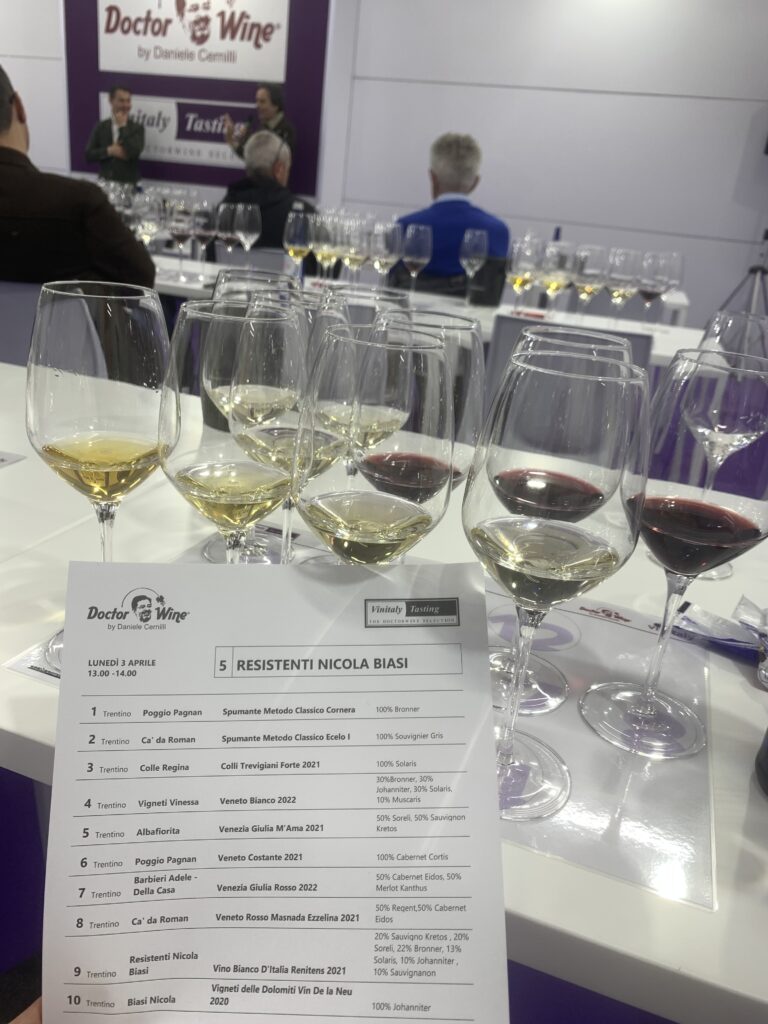
The creation of a “sustainable” vineyard and the variety best suited to the terroir are the key aspects to interprete the potential of Piwi vines in the right way and to pursue the path of environmental sustainability. “Many of these vines work best with the climate we have today,” explains oenologist Nicola Biasi. “Today, viticulture in Italy tends to move up at higher elevations to escape climate change, but we know well that beyond a certain altitude viticulture cannot exist. The solution? Changing grape varieties and finding the resistant ones that are suitable for the terroir where the vine is grown, but above all just that are the right ones to to express the territory in which they are located.”
Pizzolato belongs to the network of 22 wineries that have joined the PIWI Veneto association with the aim of promoting fungal disease-resistant vine varieties; the association includes among its members GianniTessari, the first winery to cultivate resistant vines in San Floriano (Verona) back in 2013, and Roeno winery, winner in 2021 of the special “Environment & Sustainability” award at the 25th edition of the Vinitaly Design International Packaging Competition with the Repanda Solaris wine.
These revolutionary wine varieties not only contribute to the protection of the environment and the preservation of biodiversity, but also impress with their taste.
The longevity and rebellious character of GianniTessari Solaris Rebellis
Gianni Tessari, the renowned winery situated in Roncà (Verona), is the first Veneto winery registered with PIWI International, the association that promotes the exchange of information between research institutes, breeders, growers and producers of wines with these varieties, to encourage their diffusion. The owner and winemaker Gianni Tessari told me the fascinating evolution of Rebellis, the Veneto Bianco IGT PIWI from Solaris grapes that over time, thanks to ageing in amphora, has found and consolidated its own identity. “For us, the Piwi project was born in 2013 when the Solaris grape was allowed in the province of Verona among the permitted varieties, as a response to climate change with the purchase of lands where we planted the Solaris grape embracing both the challenge of sustainability in a different territory and the challenge of innovative viticulture,” said Gianni Tessari . – “In 2017, I brought the first vintage of my PIWI wine Rebellis (vinified in steel) here to Vinitaly, a choice that caused quite a bit of discussion,” explained Tessari, who, nevertheless, wanted to continue the path he started “to give continuity to a choice representing a way of thinking outside the box” and to carry on the “challenge to skepticism about the longevity of these wines”. Thus, the winery has chosen to make all Rebellis vintages available, from the first to the last (2017, 2019, 2021): each vintage represents an evolution of Gianni Tessari path with Solaris; after several trials, in fact, Gianni Tessari opted for winemaking in amphora since it allows a proper oxygenation of the wine without altering its original aromatic set, enhancing its characteristic features and expressiveness in the best possible way. A choice that confirms the desire to breaking old patterns, a fundamental trait of the nature of this wine and its producer, clearly evident in both the name and label of Rebellis. As you can see the label depicts the legs of three ballerinas dancing with a pair of sporty shoes: like those dancers, Rebellis aims to stand out and be remembered.
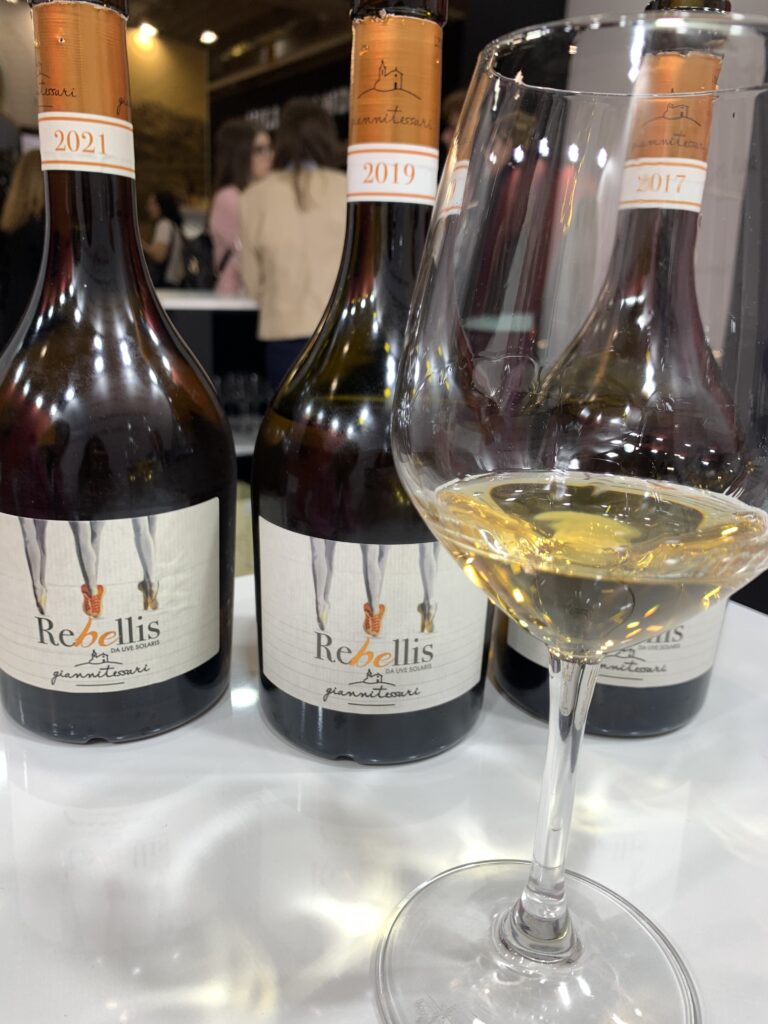
The Solaris grape is a variety that is resistant to major diseases and therefore does not require pesticide treatment, created through crossbreeding in 1975 in Freiburg. The grapes come from a 1.5-hectare vineyard located at 550 meters above sea level in San Giovanni Ilarione, in Val d’Alpone (Verona). The exposure is southeast, the training system is simple pergola and the yield is only 70 hectoliters per hectare. Rebellis is a wine with an intense, golden yellow color. The nose is fragrant with citrus notes, sweet spices and floral hints. In the mouth it is bold with mouth-filling dried fruit flavours, zesty acidity and a pleasant persistence.
Roeno champions sustainability and preservation of local biodiversity with Repanda Solaris
For three generations, Roeno has dedicated itself to viticulture in Valdadige, a narrow corridor of land on the banks of the river of the same name, nestled between Mount Baldo and the Lessinia Plateau. In the so-called Terradeiforti, the Fugatti family finds its home, a frontier area blessed by optimal climatic conditions, perfect for the production of important wines that tell the company’s values: a love for the land, true hospitality and respect for nature.
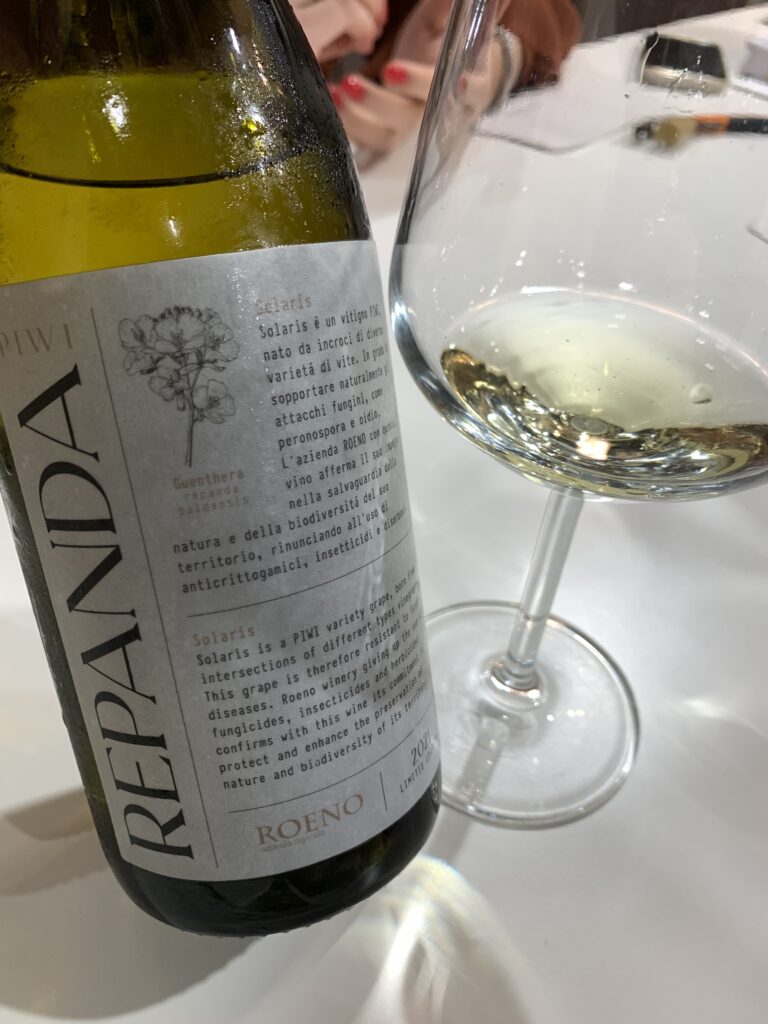
For Roeno winery in Brentino Belluno (VR), the Solaris “Repanda” wine represents its commitment to nature conservation and a tribute to the biodiversity of its territory. Born from the crossbreeding of several grape varieties, bred on the slopes of Monte Baldo, Repanda is an environmentally friendly and fungal disease-resistant white berry PIWI wine that requires no pesticides or chemicals and that impresses with its aromas with tropical notes and an interesting medium + body on the palate, all enhanced by a beautiful golden yellow colour. To obtain a high quality wine, the grapes are destemmed and gently crushed and, during ageing, cradled for six months in stainless steel containers. “The name “Repanda” comes from guanthera repanda, a wild plant discovered on Mount Baldo, known as the Golden Garden of Europe with 40 percent of the flora of the Dolomites. This discovery was listed as an endemic species by the Berlin Willdenowia, the world’s top botanical body,” explains Martina Cento, who represents the fourth generation at Roeno winery. With Repanda, Cantina Roeno has created a unique wine that is intense and aromatic, fruity and floral, combining excellence with the preservation of Valdadige’s biodiversity. In 2021 the winery was awarded the special “Environment & Sustainability” prize at the 25th edition of the Vinitaly Design International Packaging Competition thanks to the special packaging with FSC label and light glass bottle of the Repanda Solaris wine.
MaWi: Maculan’s sustainable and resilient red PIWI wine
Piwi reds are known to be difficult and are certainly less in vogue than white ones. Nevertheless, the one by Maculan winery, the historic winery based in Breganze (Vicenza), is certainly a brilliant outsider. Made from Cabernet Volos and Merlot Khorus grapes, MaWi is the first PIWI wine by Maculan winery, which decided to explore a winemaking experience that combines sustainability with the winery’s stylistic traits. Even the packaging tells about this environment choice: the glass bottle weighing less than 450 grams wears a label made entirely from recycled cotton. The winery launched the PIWI project in 2017, with the initial planting of 4,000 vines of Merlot Khorus and Sauvignon Rytos, two varieties selected by the University of Udine, and later 4300 vines of Cabernet Volos. In 2020, Maculan was among the seven companies participating in the Environmental Passport initiative for agri-food products of the mountains surrounding Vicenza through the introduction of resistant varieties in the vineyard, thus obtaining the Environmental Passport that encourages the design and marketing of new agri-food products, which are environmentally friendly. “The name of the wine takes its very inspiration from my sister (Maria Vittoria Maculan, oenologist) Maria Vittoria’s diminutive, Mavi; she was in fact the first promoter of the project from the very beginning” said Angela Maculan.
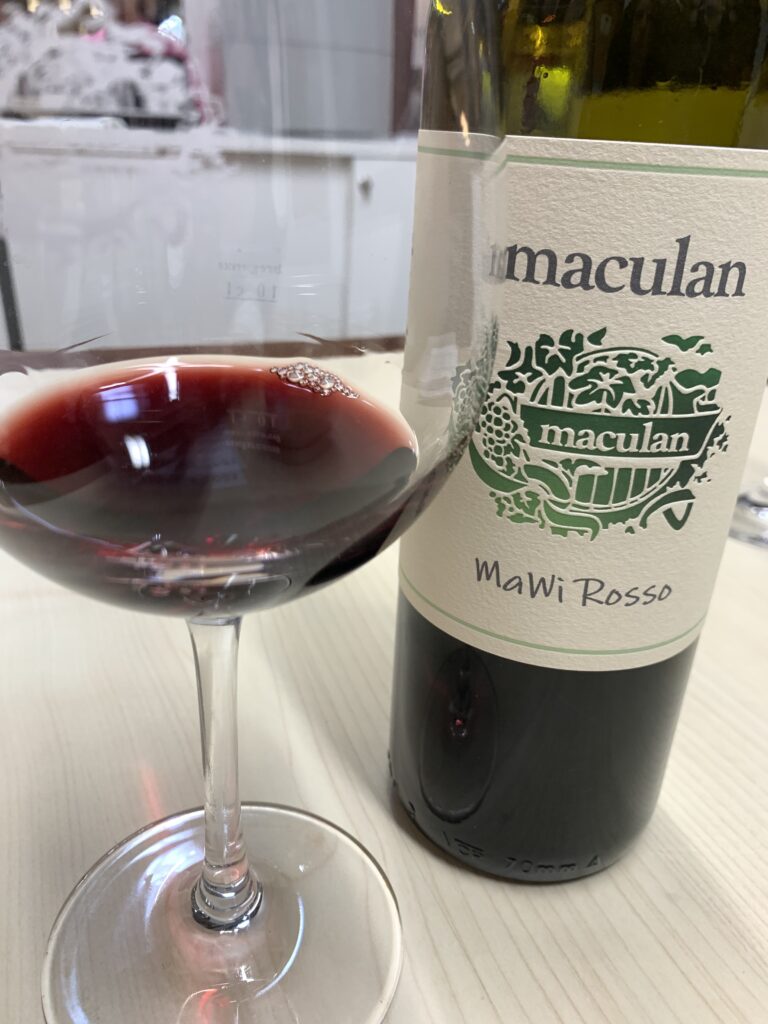
“MaWi’s vineyards,” explains Maria Vittoria at the Breganzese company, “are resistant to the main vine diseases, such as downy mildew and powdery mildew, and receive only two phytosanitary treatments throughout the production season, as opposed to the ten to be carried out with systemic and the eighteen required with organic. This means reduced use of fuel and water resources, as well as a major decrease in carbon dioxide emissions to the surrounding ecosystem. MaWi proves to be an environmentally conscious wine that combines sustainability, winemaking research and a quality taste experience.” In order to offer the best interpretation of Cabernet Volos and Merlot Khorus grapes, Maculan proceeds with manual harvesting of the grapes, followed by a phase of light drying. Vinification takes place in small steel vats with four punching-downs per day, which introduces a 12-month aging in oak barrels, new and used. Deep ruby in color, MaWi has ripe, slightly spicy red fruit notes on the nose and delivers a rich, round and persistent sip in the mouth.
Overall, PIWI wines are no longer only about resistance to fungal diseases, but also about adapting to climate change and taking another positive step toward greater sustainability.
“I would like the future distinction to be between wines that respect nature and wines that don’t: to date, the ones that come closest to respecting nature are the resistant vines, starting with the carbon footprint reduction that drops almost 38 percent between traditionally grown and resistant vines,” the oenologist Biasi said.
Measuring viticulture footprint
The Nicola Biasi network of Resistant wineries (Albafiorita wineries in Latisana, Della Casa in Cormons, Ca’ da Roman in Romano d’Ezzelino, Colle Regina in Farra di Soligo, Poggio Pagnan in Mel, Nicola Biasi in Coredo, Villa di Modolo in Belluno, and Vigneti Vinessa in San Zeno di Montagna) conducted a comparative carbon footprint study on the production of wines from traditional and resistant varieties in collaboration with Climate Partners. Managing a vineyard with resistant varieties, compared to one conducted with classic varieties, under the same climate and land conditions, resulted in a -37.98 percent decrease in CO2 production.
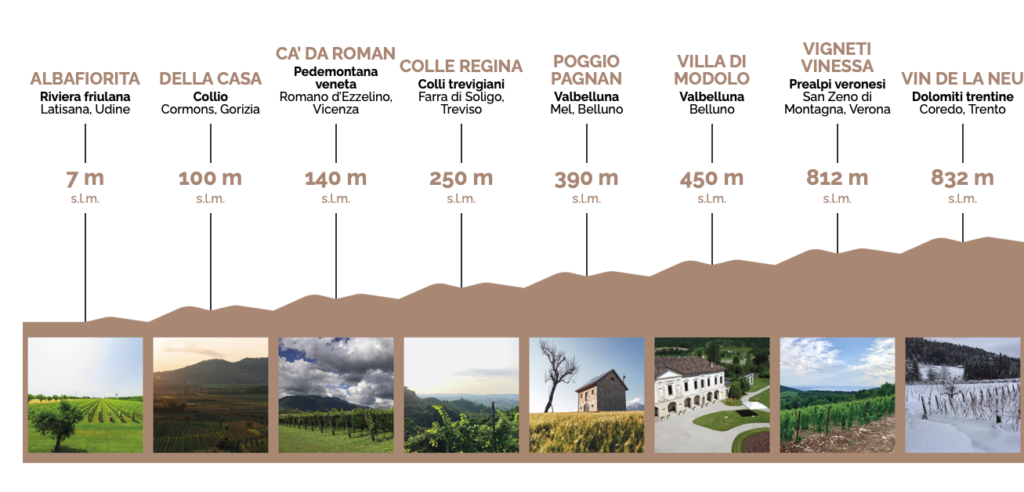
The study, conducted in 2022 at the Albafiorita winery in the province of Udine, took into account all global aspects of production, from vineyard to marketing, highlighting the importance of business choices on the issue of environmental impact. The data collected ranged from packaging, to closure, through the type of bottle used to what really made the difference: the use of resistant vines. The data made clear that with PIWI today we achieve not only lower CO2 emissions, but also high sustainability thanks to reduced treatments, less use of pesticides, reduced water consumption, resulting in an environmental impact not comparable to current viticulture.
A choice that speaks of defence of the land, enhancement of the place and awareness that, thanks to innovation, a real viticulture that is increasingly sustainable can be created.
And now it’s the consumer’s turn: those who have never tasted a Johanniter, a Souvignier gris or a Solaris or one of the many Piwi varieties available today can do so, giving these sustainable varieties a chance to grow on the market and making a choice that speaks of the future.
